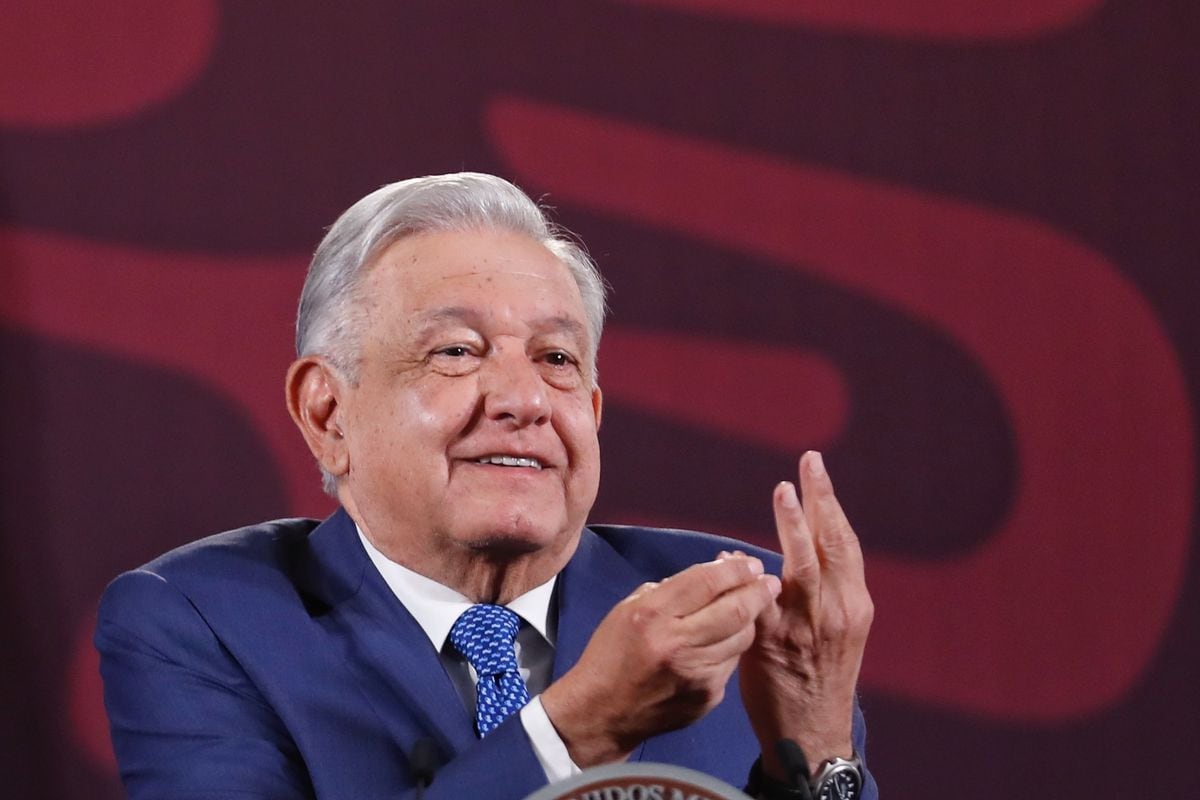Andrés Manuel López Obrador is proposing a battery of constitutional reforms this Monday that look like the government's agenda from the start of his six-year term. Its approval requires a non-existent majority in Congress, hence the approval of the elephant-trapped opposition. If opponents say they don't have to deal with voters in the middle of the campaign, say the June 2 polls. If they say yes, their people don't want it, and anyway, it will be presented as a victory for the president. A difficult situation. If a few weeks ago the PAN, PRI and PRD announced that they would be a strong shield against the President's initiatives, now they have changed the message. Who dares say no to constitutional commitment to pensions and their budget increases? Who can rule out 40 hours instead of 48 hours for workers? No one has the right choice in mind. All three parties in coalition against Morena have already said the two measures will support their votes.
Earlier it seemed as if the president wanted to pass his reforms by hook or by crook before the end of his term, and now the election has turned out to be a masterstroke. The reform package is due to be debated in the coming weeks, when Pan member Xóchitl Gálvez will campaign until the last vote against Morenista candidate Claudia Sheinbaum, who is far ahead in political polls. López Obrador will hold endless open public debates in Congress over whether he will constitutionally guarantee 100% of a worker's salary for his retirement pension, as well as collect it at age 65 or reduce it to 40 hours a week. working day It also proposes a reform of citizens' consultations so that 30% participation is sufficient to obtain a binding decision; Judges and magistrates were elected by popular vote, which had already heated up for several months, accusing these public officials of being on the side of privileges and distant from the common people; Constitutional approval for the non-withdrawal of social assistance was one of this government's strong points ahead of the election; A change in the Electoral Law that is easy to sell to the citizens, because it withdraws resources from the political class and renders the Electoral Court ineffective while reducing the weight of the INE, measures such as the withdrawal of the President's jurisdiction are more popular or populist, depending on who qualifies; The minimum wage is always above inflation; The destruction of autonomous systems has also been criticized as costly and ineffective; Such as the reform of the Electricity Act, the replacement of the National Guard under military command, or the constitutional ban on fentanyl consumption.
Analysts and the opposition have already called the reforms a covert electoral agenda and unacceptable interference in the presidential campaign. Some wanted to see some tension in Morena's efforts, if not to win the presidency, which seems to be an easy terrain, then because of the need to secure a sufficient majority in Congress, which was comfortably guaranteed to him last year. Leaving a solid foundation for the next government. For example, there is no better way to win a vote than to tell citizens that the opposition will not allow the winning party to govern, and will not allow them to raise pensions. Aware of this, Gálvez and the PRI declared themselves in favor of certain reforms. But the headlines in the media still won't be to your liking: some suggest they are “joined” with the president, while López Obrador boasts of the “desperation” of his opponents, which he says drives them to vote for him. In support of some of its activities. and to analyze others.
It has often been noted that citizens do not like the bellwether political game where one side makes one point and the opponent positions itself against it. But election campaigns require bite and sharp fangs to mobilize, engage, articulate and position voters. These presidential reforms put the opposition on the ropes, already in a weak ideological situation due to the difference in criteria between the coalition members, whose only common feature is their rejection of the head of government and his party, Morena. Also, they did not stop fighting among themselves over candidates. Being in government is like playing at home and it always brings some benefits. Therefore, the opposition has to choose well when to step up attacks and when to give in to avoid criticism from insiders and others and to take advantage of political maneuvering. The Citizens' Movement and its candidate, Jorge Alvarez Menez, must demonstrate the same balance. Today, as six years ago, they face a charismatic president who has promised to disappear from public life at the end of his term, but not a minute before.
If the campaign is expected to be less salty, these reforms may improve competition if the elections see only the opposition facing an official candidate who closes in on his field under favorable security. More dirt. There is no shortage of criticism of the government meddling in the electoral game, and the debate can be filled with complaints before the referee. But the initiatives presented to the chambers are so important that they are expected to be louder than the campaign. A general struggle that can decide the vote of the citizens will also take place in the assembly constituency.
Subscribe to the EL PAÍS México newsletter here Get all important information about current events in this country


:quality(85)/cloudfront-us-east-1.images.arcpublishing.com/infobae/BH6NLAQGXJGADFWTENBUV7Z7RQ.jpg)
:quality(85)/cloudfront-us-east-1.images.arcpublishing.com/infobae/3GK63ATFOMFAYNUAQKUL4WUJFM.jpg)

:quality(85)/cloudfront-us-east-1.images.arcpublishing.com/infobae/SJ35ZLSJ5NB4BWVRJPSK74P7AQ.jpg)